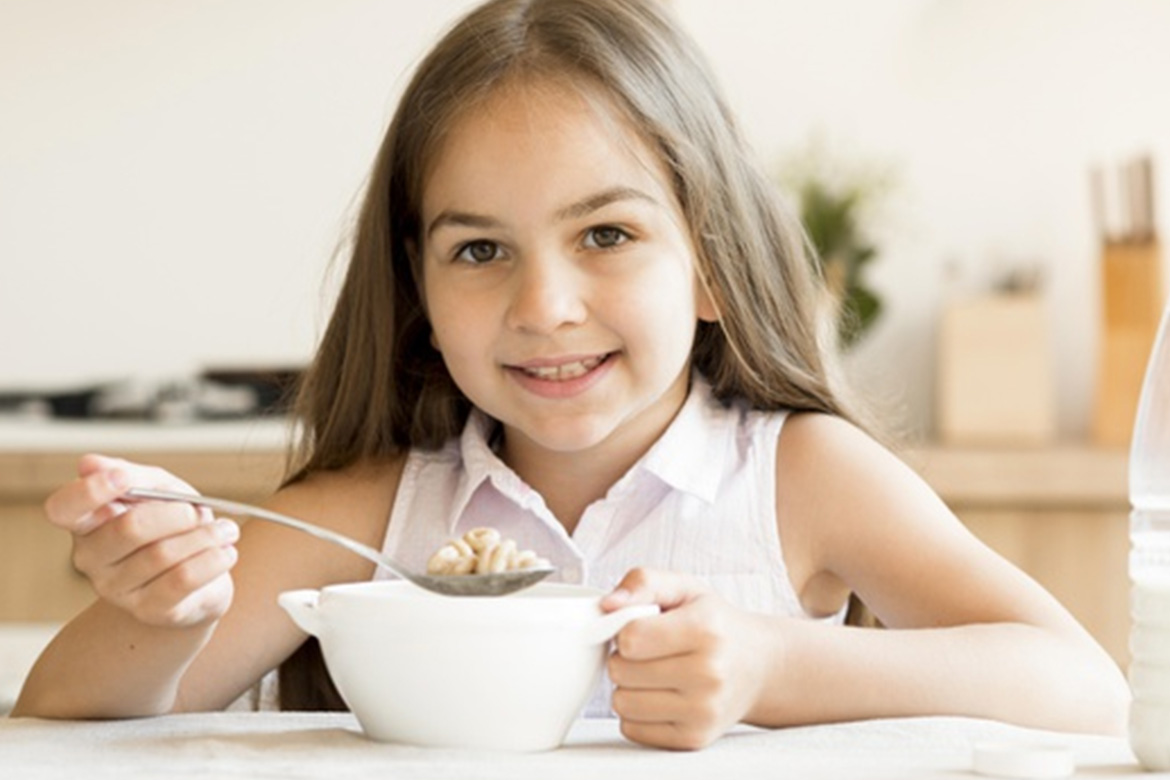The biggest challenge for parents is to maintain a nutritious and balanced diet for their children. Children gain weight more quickly as they grow. Some may be short or lean, this does not define their overall health. During childhood, there are no ideal physical measurements because children are in their motor development stage. Children nowadays have become less active in sports and this has altered food habits. Despite all efforts apart from a normal food intake the parents need to add a dose of calorie rich food to ensure weight gain.
BMI is the only attribute used to identify weight problems in children. BMI is weight per height square.
IDEAL BMI FOR CHILDREN
| BMI IN PERCENT | STATUS |
| < 5% | UNDER-WEIGHT |
| 5 %– 85% | NORMAL |
| 85 %– 95% | OVERWEIGHT |
| 95% & above | OBESE |
If the child’s BMI falls in the underweight category, one must ensure to feed calorie rich and proteinaceous food to the child.
Also Read- Weight Gainer Diet Plan To Look Good!
NOTE –
- You should never overfeed the child in order to gain weight because weight is not the only attribute responsible for overall growth and development.
- One should consult a Pediatric nutritionist/dietician if focusing on a specific goal/ athletic performance and also if the child has digestive issues or allergies.
Here Are 10 Healthy Food For Your Child To Gain Weight –
1. EGGS
Eggs are considered as superfood for children. Eggs are a rich source of protein and fats. It contains many micro-nutrients such as phosphorus, zinc and calcium. Eggs help in brain and nervous development. It also helps in muscle building and tissue growth.
NUTRITIONAL VALUE PER EGG:
- Energy – 76kcal
- Fat – 5gm
- Protein – 6gm
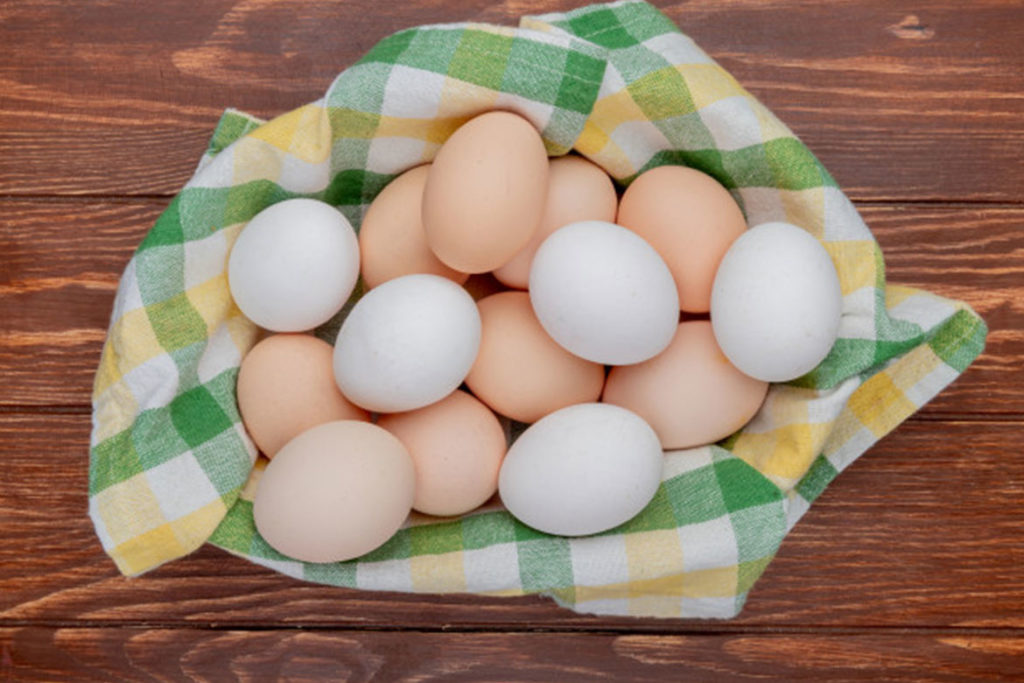
2. LEAN MEAT, CHICKEN AND SALMON
Chicken and other lean meat is rich in protein and helps in building muscle mass. Chicken is an easy to cook and high fat containing food. Chicken is also rich in phosphorus which is an important mineral for the functioning of CNS (Central Nervous System).
NUTRITIONAL VALUE PER 100gm OF CHICKEN
- Energy – 240kcal
- Fat – 13.42gm
- Protein – 24gm
Salmon is counted amongst most nutritious foods supporting brain functioning and neurological health. It contains omega3 fatty acid, Vitamin B12, and selenium.
NUTRITIONAL VALUE PER 100gm OF SALMON
- Energy – 207kcal
- Fat – 13.40gm
- Protein – 20.40gm
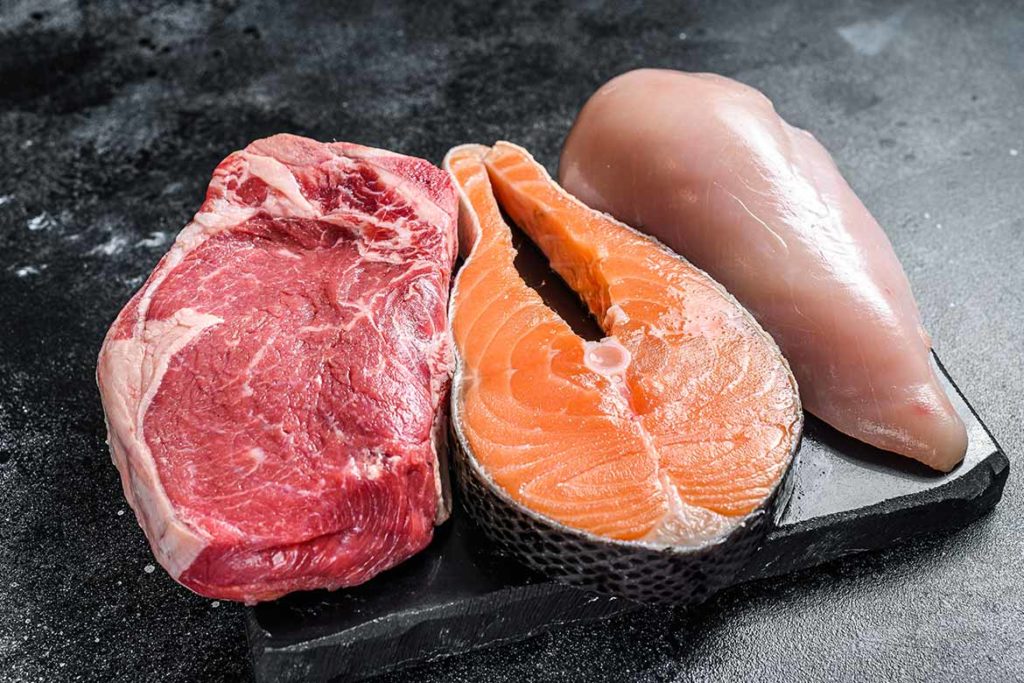
Also Read- How to Gain Weight in a Week?
3. HONEY
Honey can be used as a good alternative to sugar. Honey is a natural sweetener containing low fat, easily digestible and increases hunger. Honey contains a high amt. of calories helpful in weight gain. Honey should be consumed with a cautious amount.
NUTRITIONAL VALUE PER 100gm OF HONEY –
- Energy – 300kcal
- Protein – 0.3gm
- Water – 17%
- Carbohydrate – 82%
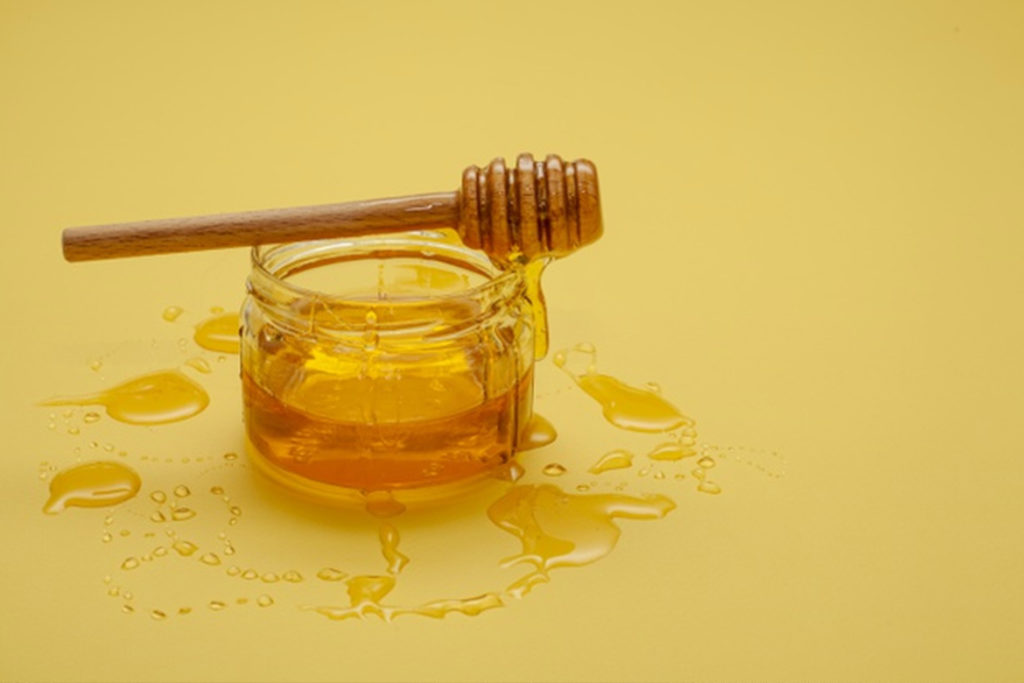
4. FRUITS, DRY FRUITS AND NUTS
Fruits are loaded with fibre, minerals, vitamins and other nutrients. Banana is most considered fruit for weight gain containing simple carbohydrates proving instant energy. Banana contains around 105 cal. Children can enjoy fruits in different forms like
a. Salad – It contains all types of fruits chopped.
NUTRITIONAL VALUE PER 100gm OF FRUIT SALAD
- Energy – 52kcal
- Carbohydrate – 13.11gm
- Fat – 0gm
- Protein – 0.75gm
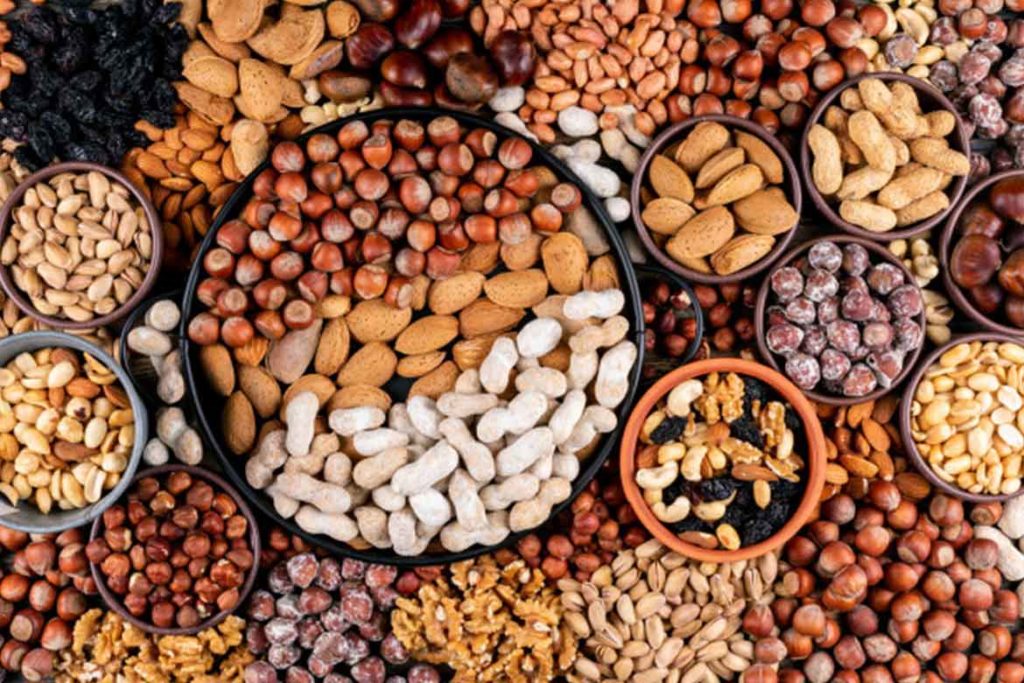
Also Read- Weight Gain Exercises!
b. Smoothie – Children sometimes are choosy/selective eating different fruits. Smoothies are colourful, easy to consume drinks made with adding some amount of milk to the fruits and blending them to thick liquid consistency. Smoothies contain vitamins, fiber and minerals especially calcium.
NUTRITIONAL VALUE PER 100gm OF STORE BOUGHT SMOOTHIE
- Energy – 35kcal
- Protein – 1gm
- Carbohydrate – 8gm
Dry fruits and nuts are handy and immensely nutritious. They are rich in protein and healthy fats. A handful of mixed nuts like cashew, peanut, almond, etc. can help in healthy weight gain. They are also rich in iron, magnesium and vitamins boosting immunity and muscle building. These can be a snack during pastime and can also be used as power in milk and topping in smoothies or ice-creams.
5. POTATO AND SWEET POTATO
Potato is rich in carbohydrates helping in weight gain, amino acids help in maintaining immunity and dietary fibre. It can be served in many forms like fried, mashed side dish etc. Children love potatoes in every form.
NUTRITIONAL VALUE PER 100gm OF POTATOES
- ENERGY – 75kcal
- Protein – 2gm
- Carbohydrate – 17.5gm
Sweet potato contains vitamin B and C along with minerals and fiber. They are easy to prepare, generally boiled, fried or baked. Sweet potato is also used to prepare pancakes and soup as a healthy and tasty breakfast.It also contains antioxidants.
NUTRITIONAL VALUE PER 100gm OF SWEET POTATO
- ENERGY – 86kcal
- Protein – 1.5gm
- Carbohydrate – 20gm
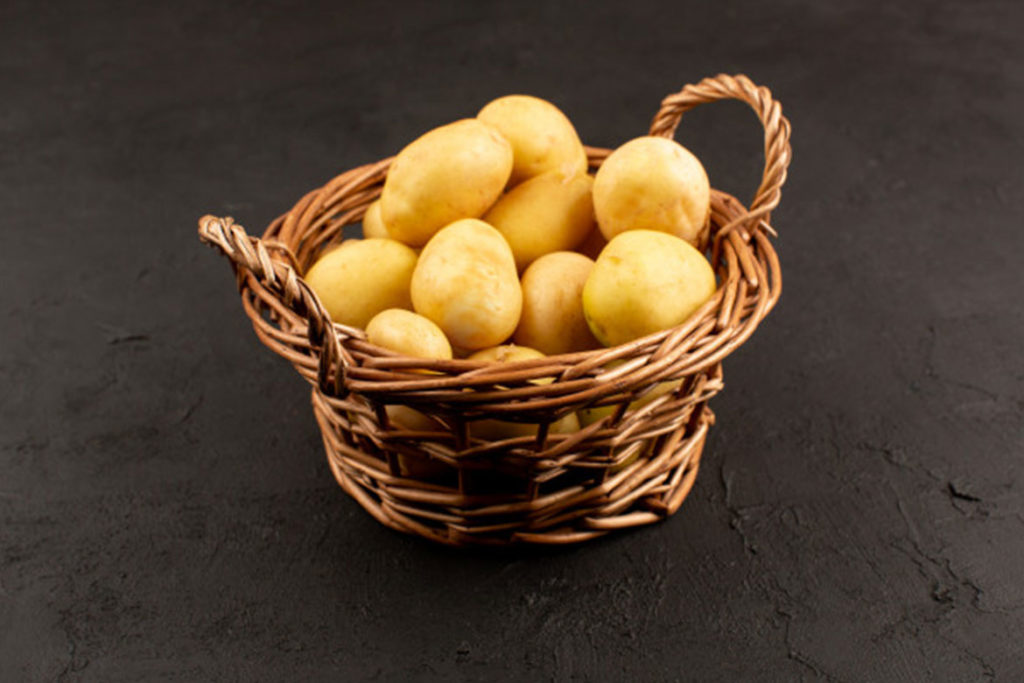
Also Read- Want to Gain Weight? Here is a Diet Chart for you!
6. MILK AND DAIRY PRODUCTS
Milk and all other dairy are loaded with calcium and protein which maintain strong bones. Milk consumed with cereal can be a healthy breakfast with a lot of nutrients. Dairy products such as butter and ghee are rich in saturated fat which help in muscle development and weight gain. Ghee contains 32% MUFAs (Mono unsaturated fatty acid) promoting brain development in children. Butter, yoghurt and curd are good for the gut and often help in digestion.
| DAIRY PRODUCTS | PROTEIN (gm) | CARBOHYDRATE(gm) |
| Whole milk | 5.43 | 2.28 |
| Cheese | 8.98 | 0.36 |
| Yoghurts | 3.65 | 2.39 |
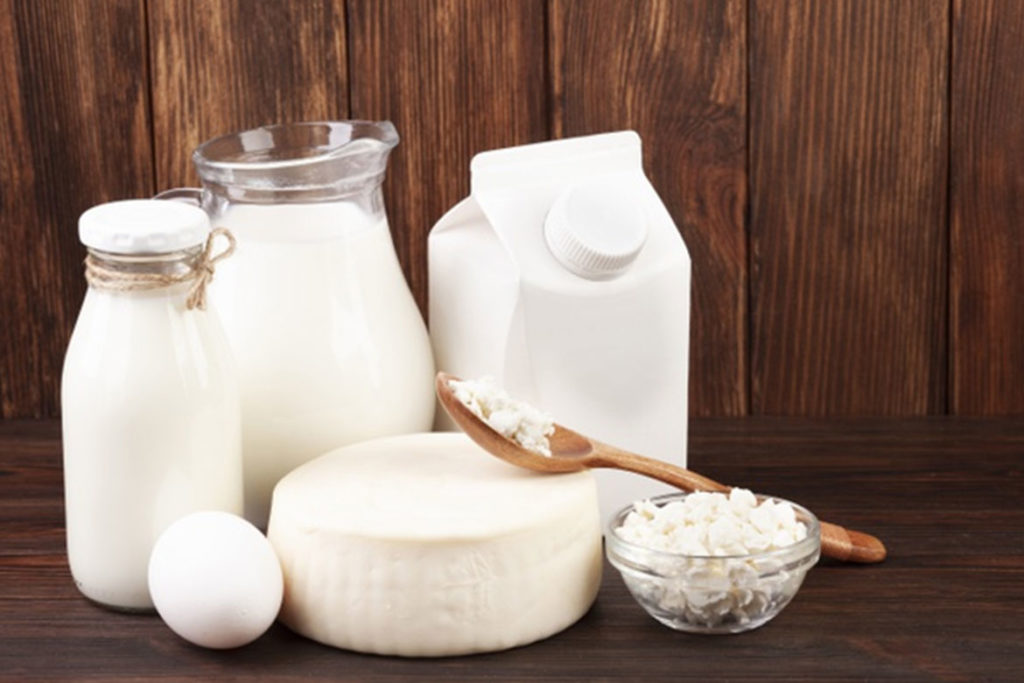
7. BEANS AND LENTILS
Beans and lentils are rich sources of soluble fibre and protein. The soluble fiber regulates blood sugar and protein helps in muscle development. Beans and lentils can be eaten, sprouted or cooked. Boiled lentils are easy to feed to children.
NUTRITIONAL CONTENT PER 100gm BEANS
- Energy – 350kcal
- Fat – 1.1gm
- Protein – 21.2gm
All types of lentils are rich in protein but moong dal is easily digested and can be introduced to children’s meals.
NUTRITIONAL CONTENT PER 100gm OF LENTILS
- Energy – 115gm
- Fat – 0.5gm
- Protein – 9gm
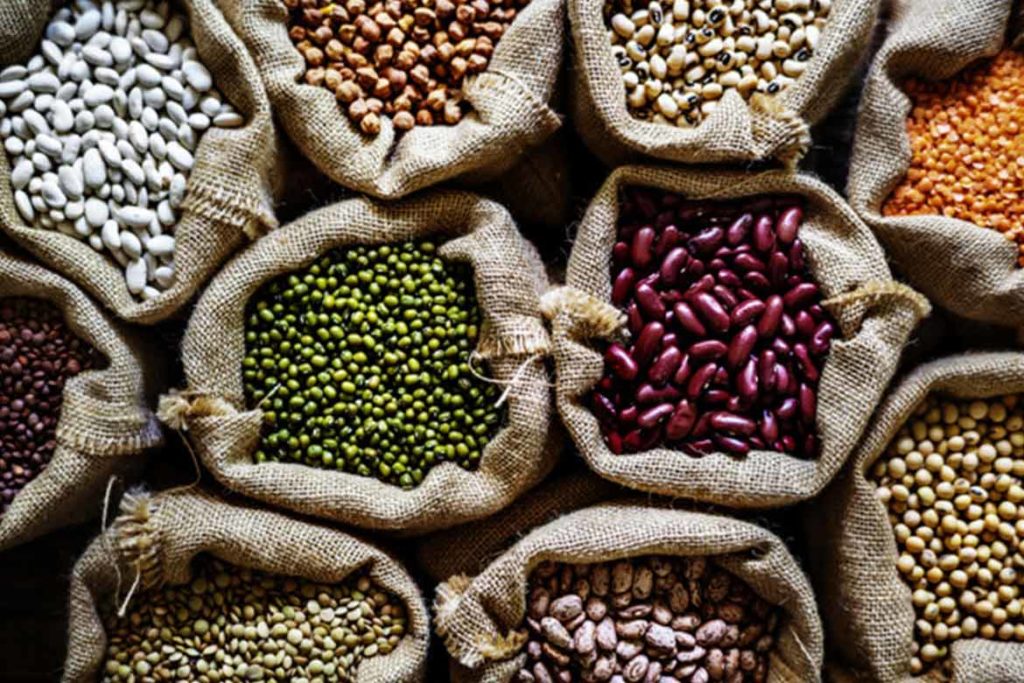
Also Read- How to Gain Weight in a Healthy Way?
8. RAGI
Ragi is loaded with protein, fiber and calcium helping in weight gain and strong bones. Ragi is also a source of Vitamin B1, B2 and B6 including minerals such as calcium, magnesium, iron, zinc and potassium.Ragi can be consumed in various types like porridge, cake, dosa, ladoo, kheer, roti, idli, cookies etc.
NUTRITIONAL CONTENT PER 100gm OF RAGI
- Energy – 325kcal
- Protein – 7.3gm
- Carbohydrate – 72gm
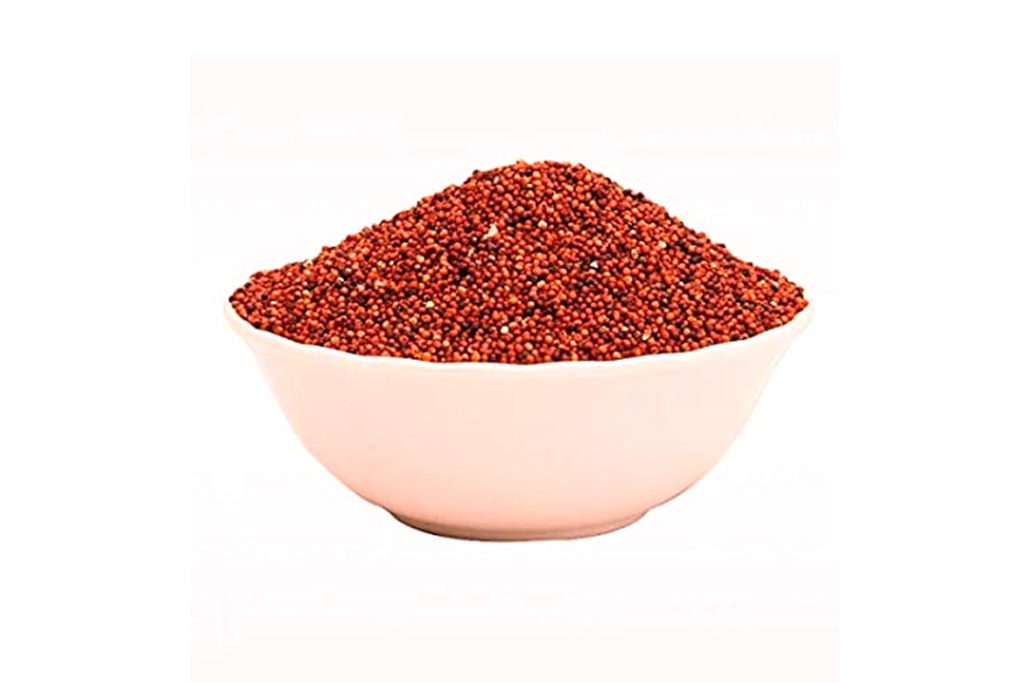
9. OAT AND OATMEAL
Oats contain large amounts of Vitamin B, iron and zinc. Oats have low fat content preventing cholesterol risks. Oats are loaded with fiber which prevents constipation. Oat and oatmeals are often combined with different food items such as milk, fruits, yoghurt etc. Oat is a versatile component as it can be consumed as sweet and savory dishes both. Some oat recipes can be porridge, pancake, khichadi, oat cereal etc. Oat is also gluten-free and is a great option for vegans.
NUTRITIONAL CONTENT PER 100gm OF OATMEAL
- Energy – 68kcal
- Fat – 1.35gm
- Protein – 2.4gm
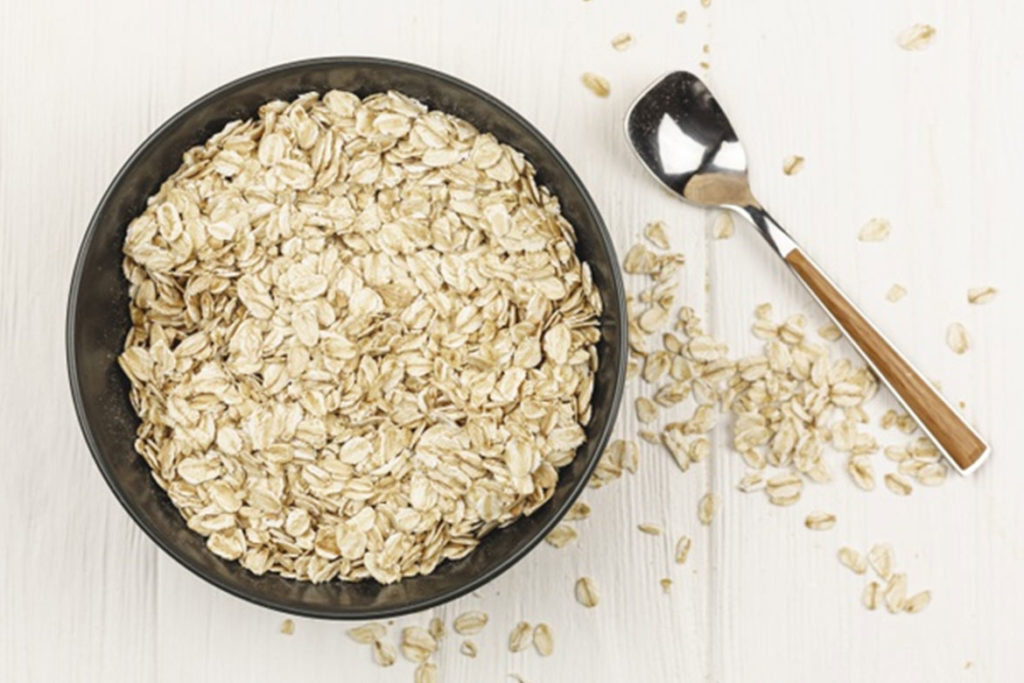
Also Read- Weight Gain Plan Routine!
10. TOFU
Tofu is a rich source of protein which is lactose-free. Tofu is derived from soy milk. The texture of tofu resembles paneer. Tofu can be consumed by stir frying, deep frying, baking with sauces in order to improve taste. Tofu also contains calcium, iron, essential amino acid, magnesium and selenium.
NUTRITIONAL CONTENT PER 100gm OF TOFU
- Energy – 75kcal
- Fat – 4.5gm
- Protein – 8gm
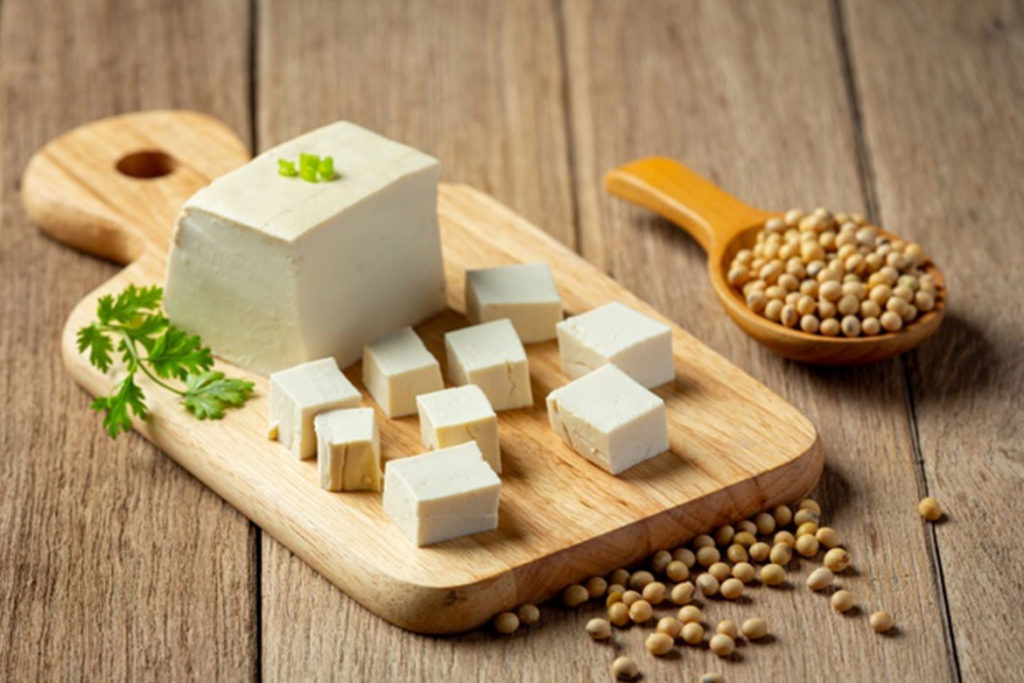
WHILE TRYING TO GAIN WEIGHT-
We have known some of the foods which can help gain weight but one should follow listed things for better results –
- Avoid skipping meals. Children should have 4-5 meals of the day with varieties of food items to supply all the nutrients required for the brain and body development.
- Incorporate 1 or 2 healthy snacks in the diet.
- Avoid energy drinks containing high sugar such as cola, fanta etc. use fruit juices for their replacement.
- Avoid/minimize low energy foods such as burgers, chips etc.
- Limit drinks during meals such as water, juices etc.
- Consult a dietician if the child is suffering from allergies, illness etc.
Also Read- Want to Weight gain? Here is a Diet plan for you!
